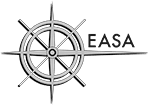Early Assessment and Support Alliance
Frequently Asked Question
FAQ
Questions and Answers
What is EASA?
The Early Assessment and Support Alliance is a network of programs and individuals across Oregon who are focused on providing rapid identification, support, assessment and treatment for teenagers and young adults who are experiencing the early signs of psychosis. EASA is designed as a transitional program, with the goal of providing the education and resources the person needs to be successful in the long-term. Most individuals participate in EASA for about two years, although that time frame varies.
What is the EASA Center for Excellence
The EASA Center for Excellence provides training and support for EASA programs in Oregon and national partner programs, including clinical training and consultation, program development, and quality improvement. The EASA Center for Excellence is part of the Portland State University and Oregon Health & Science University School of Public Health.
Who sponsors EASA?
Oregon Health Authority sponsors the Early Assessment and Support Alliance through funding and other forms of program support.
Who does EASA serve?
EASA serves young people ages 12 to 30 who have had a first episode of psychosis within the last 12 months or who are experiencing early at-risk symptoms for psychosis, and their families. The goal of EASA is to identify individuals with a new psychosis as soon as possible in order to minimize the negative impact on their lives.
Are programs like EASA available in the United States?
The good news is that Congress has made Mental Health Block Grant dollars available to create programs similar to EASA nationwide. As a result, there are now programs in most states and the number of programs is growing steadily.
Until recently, early treatment of psychosis in the U.S. is a great example of a group of people “falling through the cracks.” Private health insurers and providers in the U.S. have had a tendency to view treatment for psychosis as the purview of the publicly-funded mental health system. Young adults who are most susceptible to onset of psychosis also have a higher likelihood of being uninsured. In addition to the financial barriers, evidence-based treatment for psychosis is not easily available in many locations. Many of the evidence-based practices have only recently been widely disseminated, and most of the medicines currently in use were developed within the last decade. It takes time for the system to catch up to current science.
Who started EASA?
Mid-Valley Behavioral Care Network (MVBCN) started EASA in 2001. MVBCN is an intergovernmental managed mental health care program started after the Oregon Health Plan. When EASA began, it consisted of Marion, Polk, Linn, Yamhill and Tillamook Counties. Oregon Health Authority began to take responsibility in 2008 after the legislature funded the beginning of statewide expansion. EASA was originally based on the work of the Early Psychosis Prevention and Intervention Center (EPPIC) in Melbourne, Australia (now Orygen), and evolved to integrate additional evidence-based practices
What insurance programs does EASA take?
EASA takes all funding sources, and tries to make services accessible regardless of ability to pay.
Do you take referrals outside of EASA counties?
No, although EASA staff will sometimes provide consultation and technical assistance to people outside the region.
How can I help EASA?
EASA offers many opportunities to make a difference, large or small. Donations to EASA are greatly appreciated and may be tax deductible.
